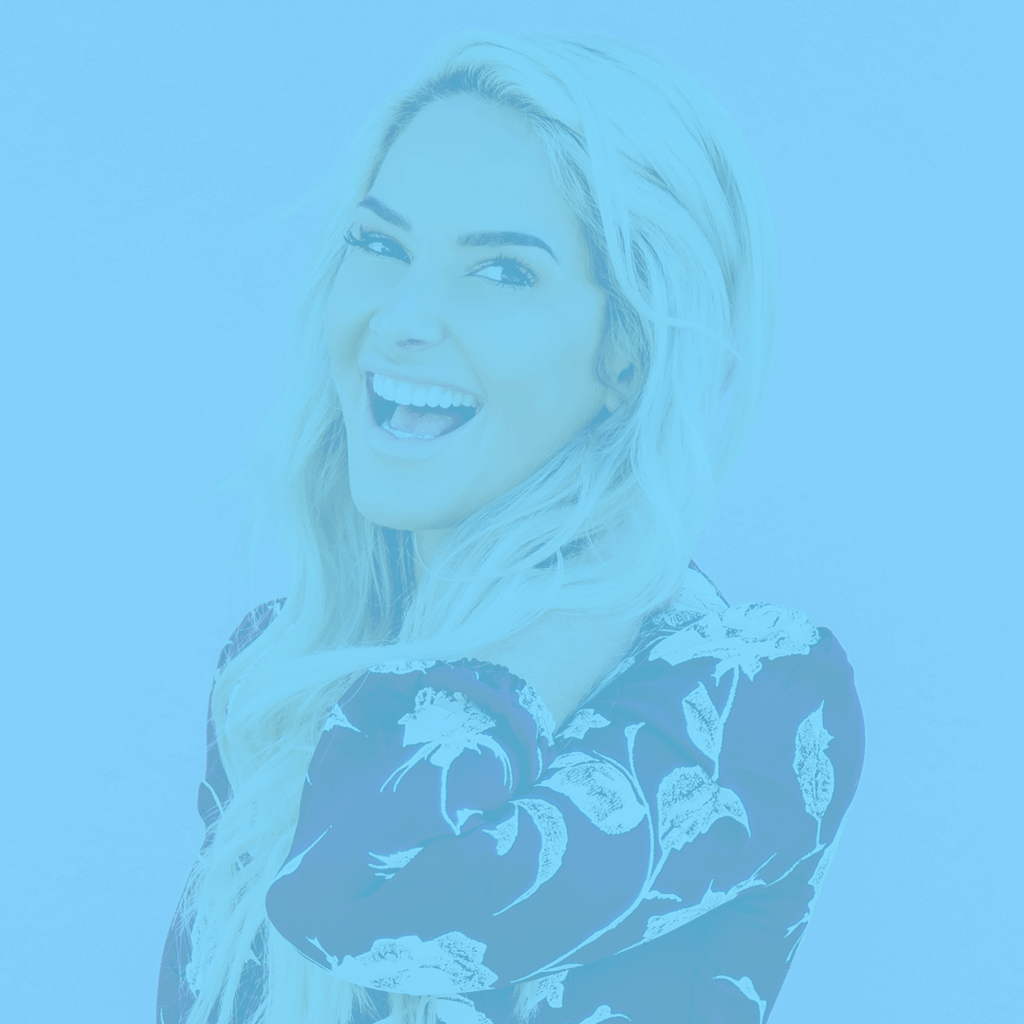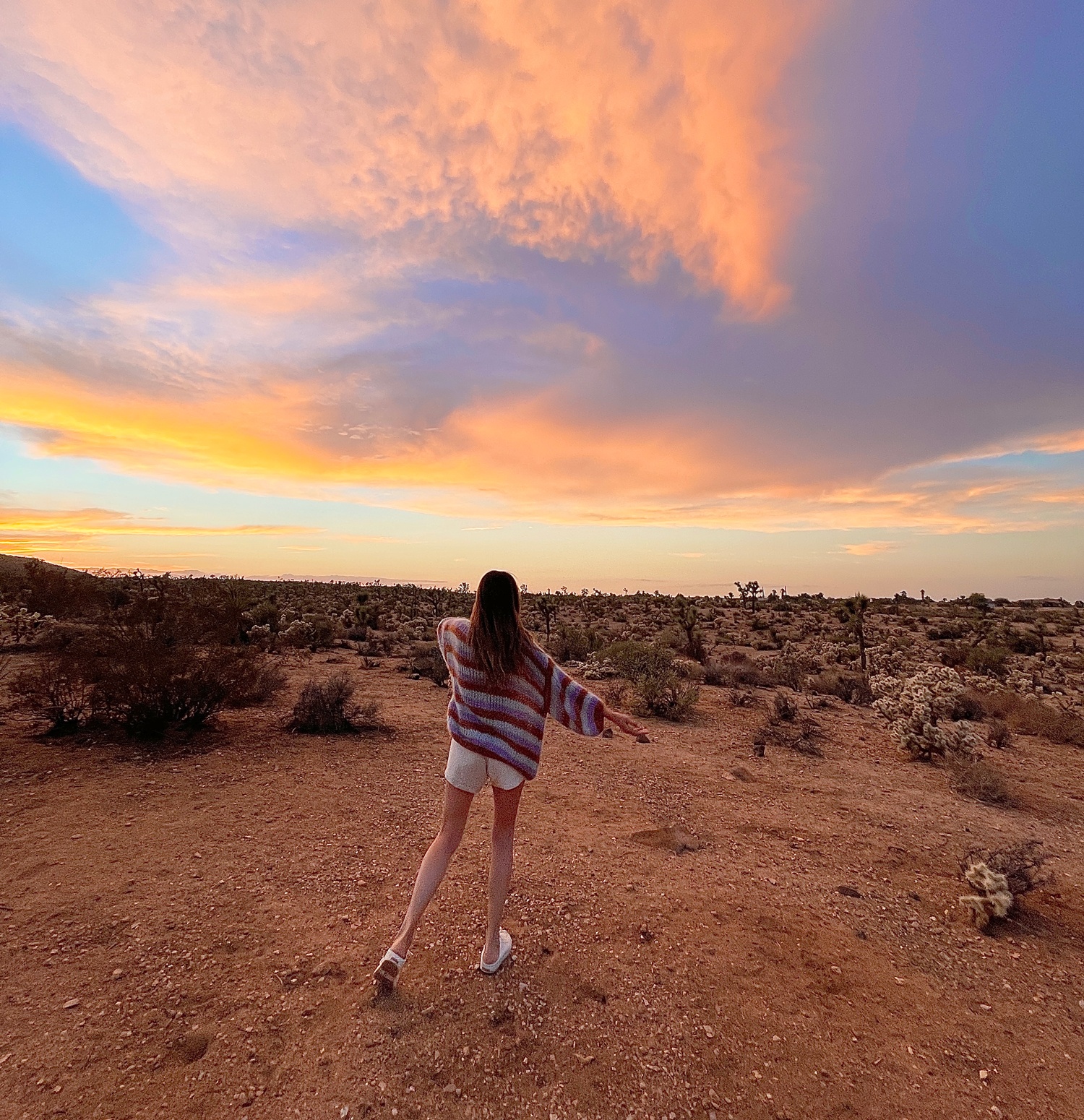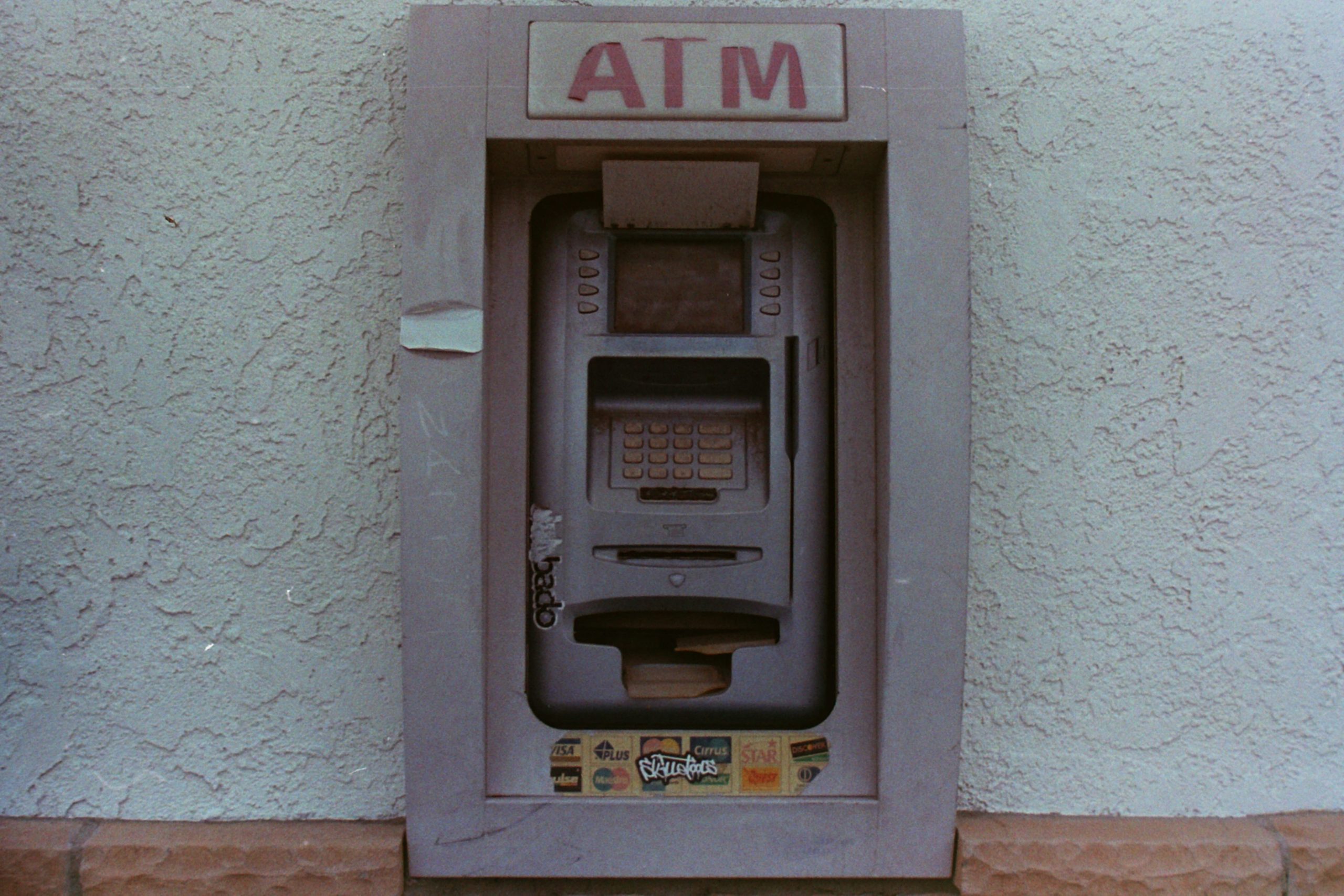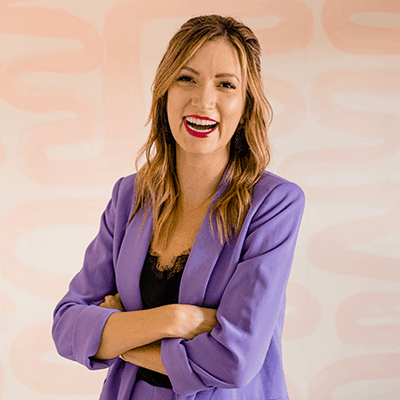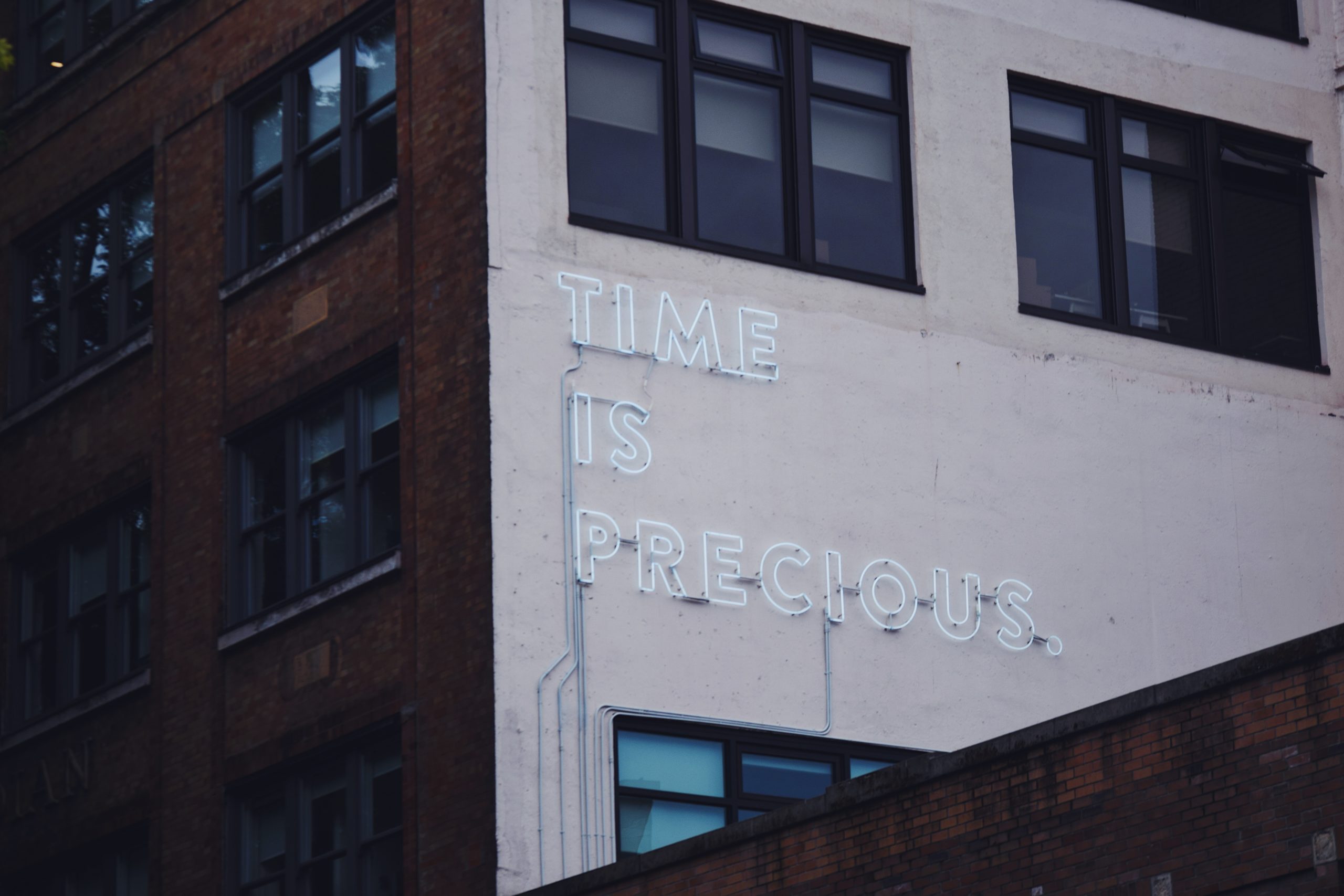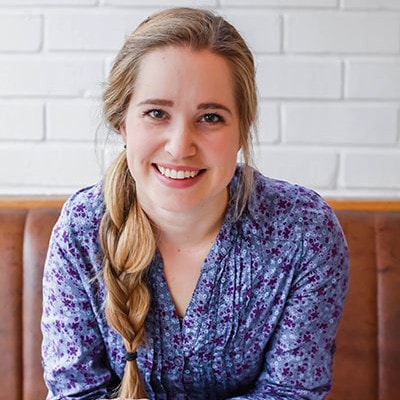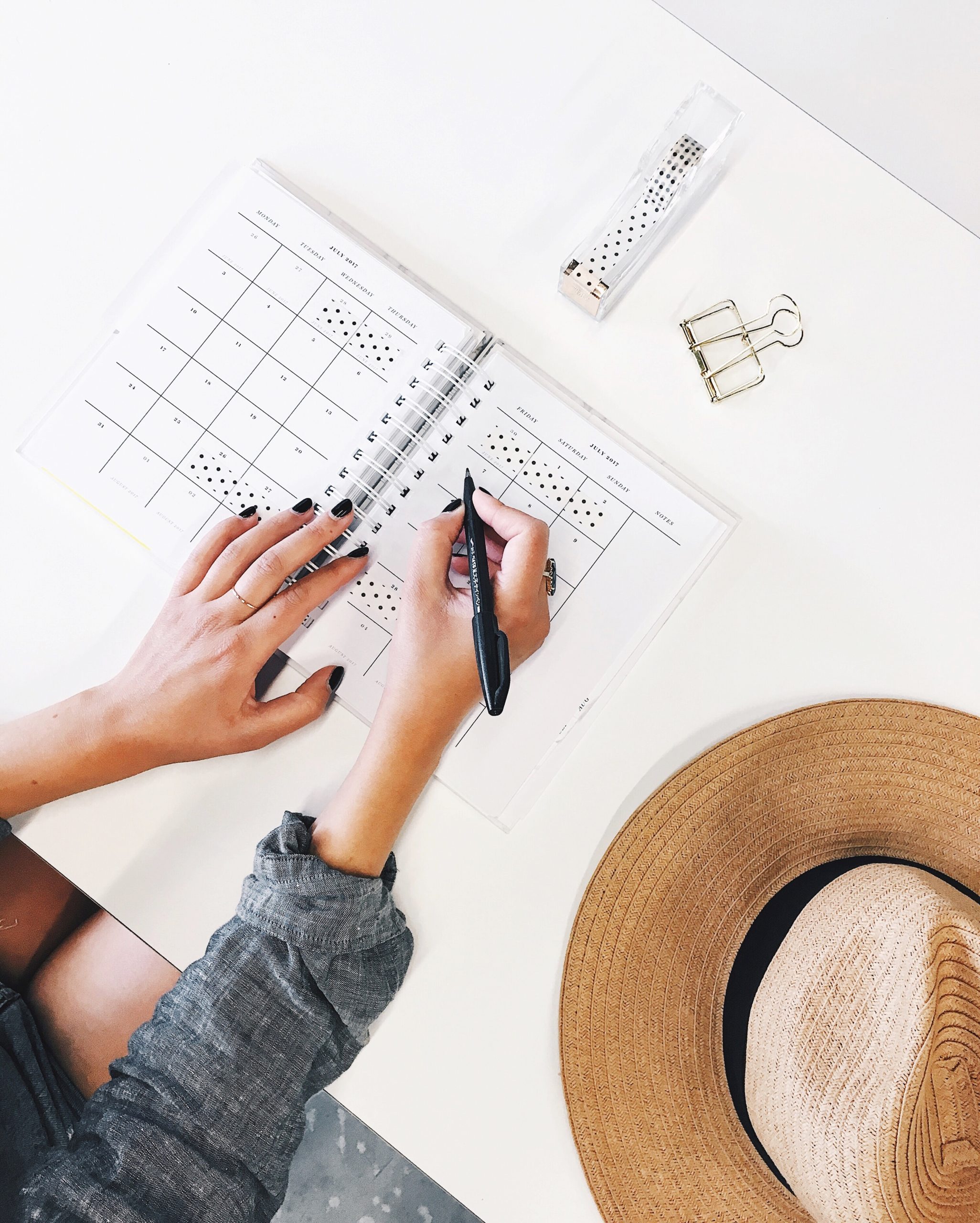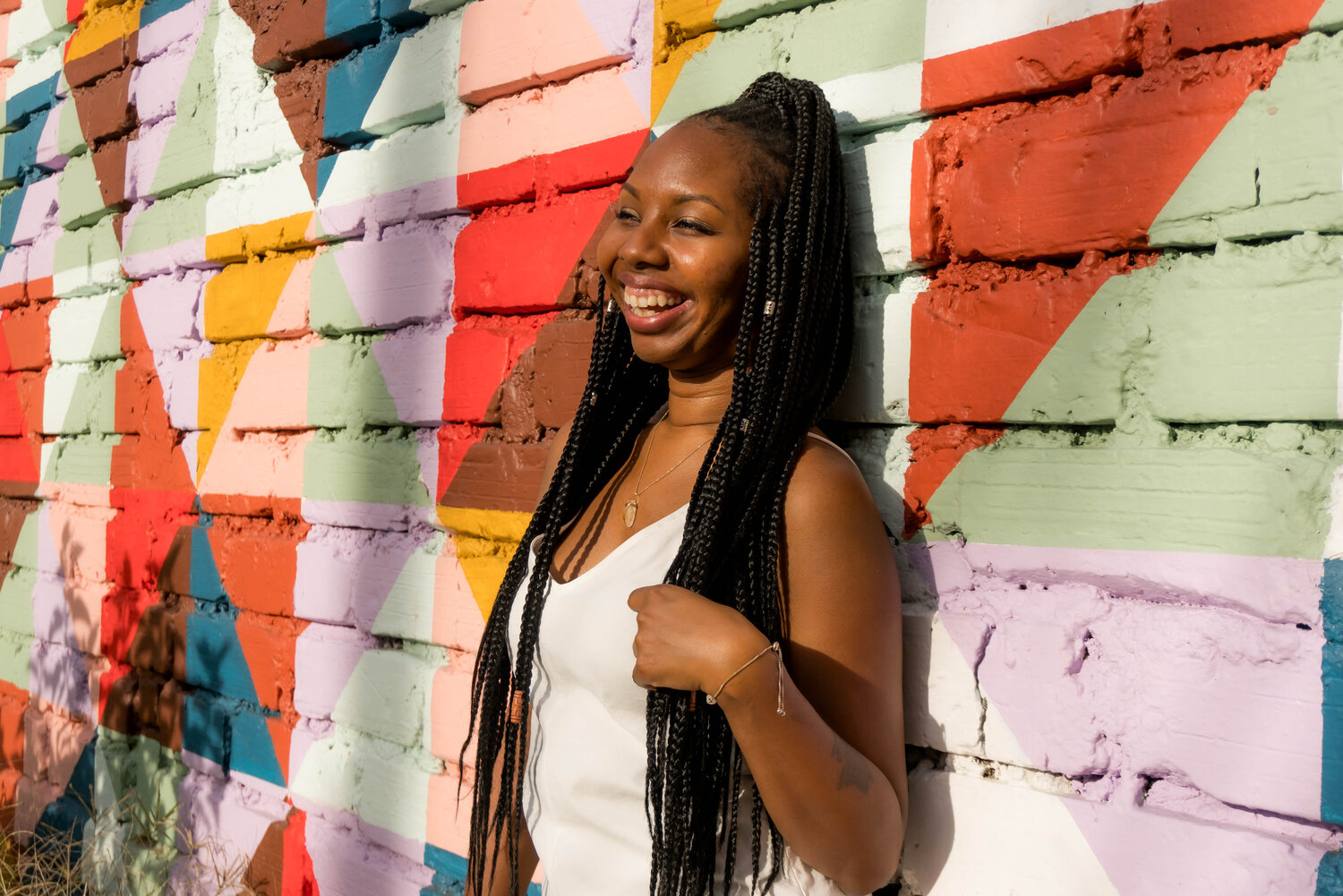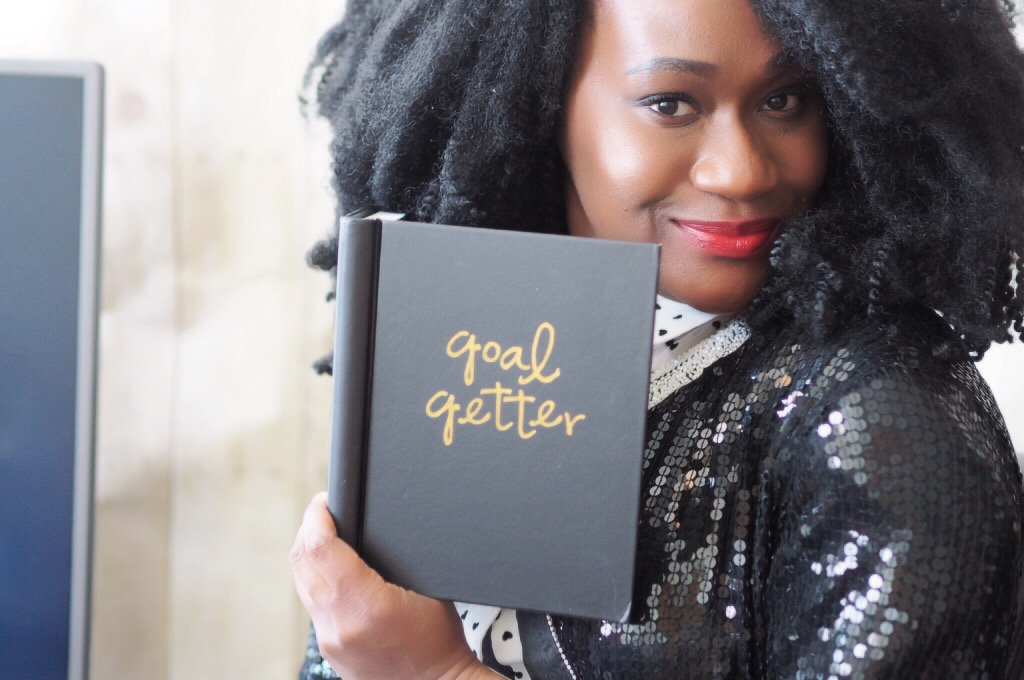On the outside, Lori Harder’s life is about as perfect as they come.
She has a massively successful fitness and personal development business, she sells out her 500-person conference, Bliss Project, every single year, and she lives in a gorgeous house in Southern California. Lori also has an incredible husband who I also know (Hint hint: Chris was a past guest on this podcast – see Episode 20: A Millionaire’s Advice on How to Remove Your Money Mindset Blocks to Fully Live in Abundance and Wealth). To top it off, she basically looks like a supermodel!
So while it may seem mindbogglingly easy to peg Lori as someone who hasn’t struggled a day in her life, you already know that’s never the truth.
Lori grew up feeling misunderstood for the first few decades of her life, until she transformed her past pain into something beautiful. Today, Lori is on an unstoppable mission to heal others from their pain too.
In this interview, Lori and I chat about her brand new book, A Tribe Called Bliss, which is all about finding and creating a deeply connected circle of friends.
I love Lori’s surprising advice when it comes to relationship building, and I always appreciate her transparency, wisdom and humor. I know you’re gonna love her too.
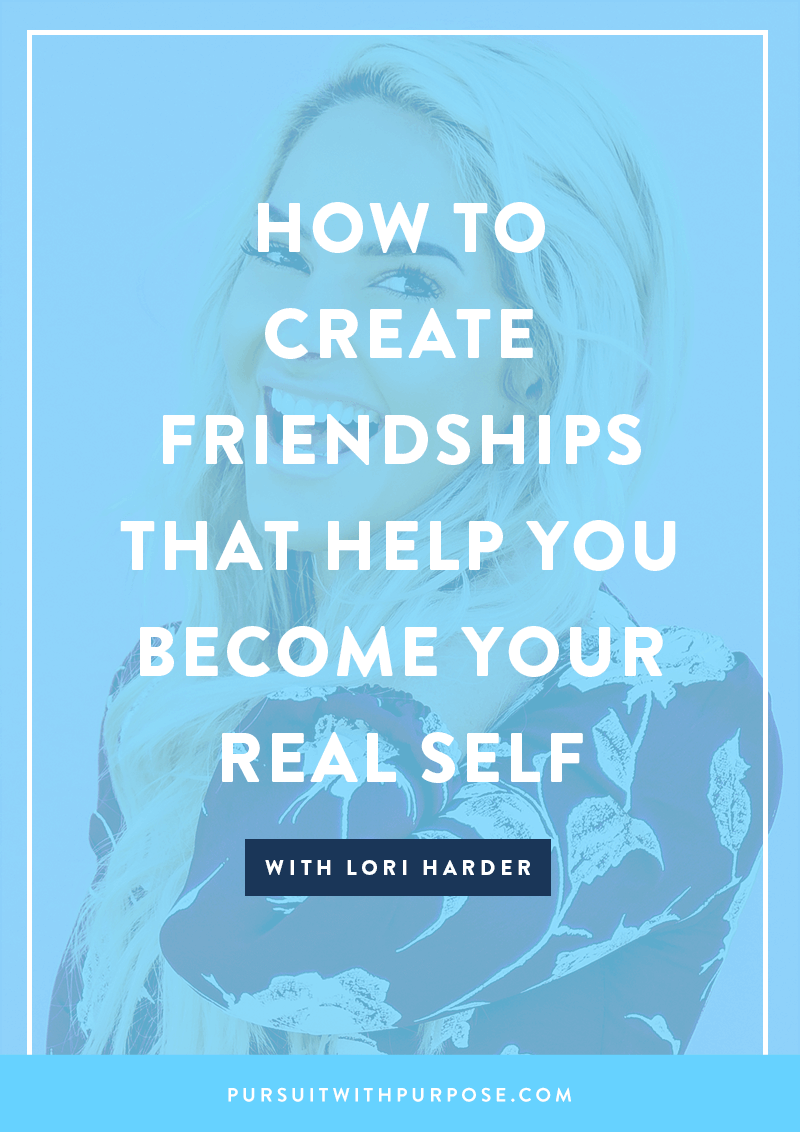
Check out the episode below:
In this episode, you’ll hear about things like…
- Lori’s unique method of calming herself by channeling the energy of herself as a little girl.
- How Lori’s new book breaks through what she calls all the “superficial small talk.”
- The non-negotiable personal development routines that are vital to Lori’s life.
- Why it’s so important to find the right tribe for you.
- What the 7 sacred agreements are (and what they can do for your relationships!)
Some Questions I ask Lori…
- It seems like you have some really beautiful gratitude and personal growth routines — what do those look like for you?
- In the beginning of your book, you say, “This book holds the map to uncover the real you in order to manifest the relationships you’ve been missing because of who you’re not yet being.” Can you unpack that for us a little?
- In the beginning of the book, you talk about where you grew up. Can you tell us about that place and what your early years were like?
Links from the interview:
- Lori’s Website
- A Tribe Called Bliss: Break Through Superficial Relationships, Create Real Connections, Reach Your Highest Potential, by Lori Harder
- The Bliss Project
- Lori on Facebook
- Lori on Instagram
- Lori on Twitter
- Christine Hassler (Lori’s Coach)
- The Four Agreements, by Don Miguel Ruiz
What do you think?
I’d love to hear your thoughts on this episode. How can you create more bliss in your day-to-day life? 🙂
Here’s how to subscribe + review
Want to be the first to know when new episodes are released? Click here to subscribe in iTunes!
Also, podcast reviews are pretty darn important to iTunes and the more reviews we receive, the more likely we’ll be able to get this podcast and message in front of more people (something about iTunes algorithms?). I’d be extremely grateful if you left a review right here letting me know your favorite part of this episode.
#PursuitWithPurpose
Loving the podcast? I encourage you to use the hashtag #PursuitWithPurpose to show our PWP tribe how you live your purpose everyday. Plus, you’ll get to sift through the hashtag to find other business owners who care about community and connectedness over competition and comparison. And I’ll be reposting some of my favorite images and stories, too. 🙂
Thank you for listening!
Transcript
Read the Interview Transcription HereHello, Pursuit with Purpose tribe. So I want to be real with you. When I first met today’s guest, Lori Harder, I never have assumed or thought that she had struggled to find real friends in her life, and that’s because on the outside, Lori’s life is about as perfect as they come. She has a massively successful fitness and personal development business. She sells out her 500 person conference every single year. She lives in a gorgeous house in Santa Monica, has a great husband who I also know. She basically looks like a supermodel. So it’s easy to peg her as someone who hasn’t struggled a day in her life, but as a listener of this podcast, you already know that’s never the truth. Now I am so grateful for friends like Lori, people who grew up in abusive households, who felt like they never fit in and who spent much of their lives feeling worthless and unlovable, and yet, have transformed their pain into something beautiful and are now on a mission to heal others from their own pain too.
Now in this interview, Lori and I chat about things like what it was like for her growing up in a very restrictive religion, being teased for her weight as a kid, and feeling misunderstood for the first few decades of her life. We also dive into the concepts of her new book, “A Tribe Called Bliss”, which is all about finding and creating a deeply connected circle of friends. This conversation is for anyone who wants to get rid of the surface level friendships in their life and create a real tribe of people who will be by their side for a lifetime. Now I love Lori’s surprising advice when it comes to relationship building. I always appreciate her transparency and humor, and just so many things about her. You guys are going to love her too. So let’s say dive in.
Melyssa Griffin: Hey, Lori. Welcome to the show.
Lori Harder: I’m so excited to be on with you! It’s just like extra friend time to be honest.
Melyssa Griffin: Yes. We’re just like catching up and having a conversation that people get to listen to. So you recently wrote a book called “A Tribe Called Bliss”. What is this book about?
Lori Harder: Well this book is about so much. It really is a self-development book, but it’s a self-development book that is meant to be done as a tribe, because it’s also a book that is meant to create deep, lasting relationships and really breaks through all of the superficial small talk. It really teaches you how to connect deeper with the people that you’re choosing to connect deeper with. It’s not that you can necessarily go out in every single relationship that you have small talk with or the first time you meet someone, you’re going to dive deep and be like tell me about your deepest, darkest secrets. It is a book that’s going to help you take those relationships that you want to go deeper and deeper so you can connect more and you guys can really support each other in where you want to go in life.
Melyssa Griffin: Yeah, I totally see that in your book. Why did you decide to write it? Why did that feel so important to you?
Lori Harder: It came from so many different things, Melyssa. It was like, for me, I realized the importance of having people in your life that are in the area that you want to go to, that are already at the next level where you want to go to, and how scary that can be for people. The reason that we don’t have these tribes that pull us up is because we don’t yet feel like we’re ready to go into these tribes yet. We don’t feel like we have something to offer. We don’t know what to say. We don’t know—is this acceptable? What does this actually look and feel like? It’s like when you think about going into these different groups of people who are maybe ahead of you, we have all these doubts and all these scares and all of these questions. It’s like the book really confronts what it actually looks like through this process, and what you’re actually thinking, and what fear really feels like, and what the process actually looks like. And then for me, in my life, until I started building tribes outside of the one that I was in—and when I say tribes, tribes are really—they’re your workplace people, they’re your family, it’s your church, it’s the PTA, it’s your school. It’s whatever group you’re running in the most, that is basically who you are becoming. So it’s your ideas, it’s your beliefs, it’s how you’re feeling about the world, it’s how they’re looking at the world. You really adopt those different lenses.
So for me, growing up, I was raised in a really restrictive religion. I wasn’t allowed to associate with anyone outside of my religion. So what happened when I turned 18, I knew that I was no longer feeling pulled in this particular direction of this faith. What happened is—and also being raised not only in a very religious family—and I would never take any of it back because it’s helped me so much with who I am today—but also the beliefs of we had bad genetics; my family was really overweight, we were always struggling with money, life was hard. These were the beliefs of my tribe. So when I was 18 and decided that these were not working for me, I was feeling really depressed, I was struggling with my weight, I knew that I wanted a faith in my life and a connection to a higher power that was not fear based. So I had to totally go off on my own. That led me to some pretty scary places because I did not have anyone to connect to outside of that yet. I thought that if I wanted to be successful, I was going to have branch off and figure it out on my own. That can be a really lonely place because it leaves you alone with all of your stories. It leaves you alone thinking that you are alone in the world. It leaves you alone, really isolating yourself. We all know what happens when you isolate yourself if you’re in fear, it just gets worse and you could maybe go crazy like I did. That’s why it’s so important to me to teach people to build different tribes, especially if you’re not being accepted by your current tribe or your current tribe is not supporting your growth, is not supporting the real you. These are all signs that you maybe don’t need to ditch your tribe, but you do need to build tribes outside of the one that you’re in, in order to start transcending and becoming the version of you that is freedom, that feels most like you.
Melyssa Griffin: Yeah. I love that. I loved what you said that your tribe is who you’re becoming. I think that’s such a beautiful, succinct way of thinking of, like the community that we surround ourselves with. I feel like I’ve had some conversations with people lately, where as they gain some success in any area of their life, they notice that some of those relationships or communities that they’ve had off all throughout their lives or that they’ve been connected with, are no longer serving them. It’s really hard for them to let go of these people that have always been there, even if they’re not in that trajectory of where they want to go. Can you speak to any of that? Have you experienced that yourself?
Lori Harder: That’s the story of my life. So let me share. So the thing about growth, is growth is not comfortable, but staying the same is more uncomfortable, because our whole—here’s the thing that you have to get really, really clear on with yourself, is the whole purpose why we are on this planet, is to grow. There are going to be people in your life who realize that and people in your life who are not—this might not be the life that they realize that in. We also seek to keep ourselves safe. So when they see you growing, this also makes them feel like you are changing. It makes them feel like you’re changing the relationship. It makes them feel like they have to—hold a mirror up to them as well of what they’re not doing in their life. So the quickest thing that we do as humans in order to keep ourselves safe, is to try to keep the people around us exactly—we try to control them. So what happens is that most of the time, they’re going to do the thing that’s going to make us go back to who we were, and that is to make us feel bad, to remind us that we may get kicked out of this tribe, to remind us that we may not be loved anymore, to take away their love, to try to hurt us into getting back to—and they’re not doing it on purpose, you guys. They’re doing it because they love you and they don’t know a different way to love you. You have to recognize that and say you’re not going to spend as much time in this group and you are going to start spending more time outside of it. There are certain times when you are going to have to let go of those people and recognize when you have fulfilled each other’s contracts in this lifetime, because there’s also really disempowering beliefs that we are meant to meet people and they’re going to be in our life for our lifetime. That’s simply not the case, and actually by thinking that you need to be in these contracts for a lifetime, is actually not only harming yourself, but it’s harming them too.
It’s keeping them from the people that they’re meant to meet. It’s keeping them from all of the different paths that they have to go down. It’s keeping them from some of the heartbreak that they are meant to go through. You guys, rock bottoms are meant to be hit. We cannot rob somebody of their rock bottom. So when we are trying to carry someone with us, we might actually just be keeping them from a journey that they’re meant to go through. So your only journey is to follow your soul’s journey, and that is to constantly find and move towards the things that light you up and give you energy. If it’s not giving you energy, that is your biggest sign that you are meant to move some of your energy away from the thing that is draining you or not fulfilling you anymore, because if we are meant to grow, we’re constantly going to have to seek. If we’re not seeking and we’re staying the same, then you’re probably pretty miserable and you’re probably living someone else’s life.
Melyssa Griffin: Wow, I freaking love that. I loved what you said that you can’t rob someone of their rock bottom. It seems like that’s almost something that we’d be putting on somebody that’s horrible and we would never want to do that, but you’re framing it as such a gift to have those rock bottom moments and those challenges and struggles, and to be able to even give them to other people in our lives as we separate from those who maybe aren’t serving us anymore in our own mission and in their mission. So it’s like this two way street of giving and receiving. I love that, that reframe of that. Beautiful. So you have your book which is “A Tribe Called Bliss”. You have your conference, The Bliss Project. What does bliss mean to you? Why is this such an important word for you?
Lori Harder: So bliss to me really is—it’s like that place where you are just—have you ever heard of the word just equanimity? Where it’s just like fully accepting of all that is, where you’re at peace. I think peace is so priceless. Bliss to me is not just at peace, it’s being fully you. You know that friend who just, when you’re with her or him or you’ve had those moments where you just fall in love with yourself, and you’re like I actually love you because I feel so me and I feel so free. It’s just like this freedom, that is bliss to me. I really believe that we cannot get to those places without also going through the fire. So bliss to me is like full accepting of everything that is coming into your space. It doesn’t mean it’s going to be easy, but it does mean that it’s understanding that even the low points, the ugly, the fear, the fire, it’s all trying to burn away what’s not serving you, in order to get more into your bliss. I think there are so many levels of bliss, and that we might even think you’re at a great level of bliss, but you haven’t even accessed what you’re going to be able to access. So for me, bliss is just accepting all of it and really being able to follow it, because it’s not the actual reaching of the level. Joseph Campbell talks about following your bliss. I believe that the bliss is in the following of the bliss.
Melyssa Griffin: Yeah, not the destination. I like that. As you were talking, I was thinking about what you’re saying with relationships where there are certain people where you hang out with them and you just feel like you are your whole present, best self, and then maybe there’s other relationships where you feel like you have to bring a certain type of person or you have to be somebody else. Those relationships where you get to be your fullest self, are so beautiful. For me, that’s a) something that you’re incredible at, that you really help create that space for the people around you to be themselves, and b) for me, seems like a big reason why this book is so important to you, creating those spaces with other women and people who read “A Tribe Called Bliss”, to feel like they have that space to be who they really are, and then hopefully to bring that to the rest of the world too. I love that. So I know you talked a little bit about your early life growing up, but you had this section in your book where you talked about your life pre 11 years old. I thought it was so beautiful. It totally brought me to tears as I was reading it. I would love to know if you could tell us a little bit more about those early years, that place where you were, and who you were at that time as a person.
Lori Harder: It’s like we never go back here, and I remember writing that part of my book and really getting back in touch with that little girl who was just wild and free and fun and funny, and the world was just so open. Everything was an opportunity to create an experience that I wanted. How awesome is that? I literally remember going through moments of like how can I create an experience for myself that I’m going to totally enjoy and also bring other people in to my own world so they can enjoy this. Isn’t that the whole point of life? How can Melyssa create an experience that she is so in love with and obsessed with, and that is just so fully her, and then invite other people into this world to experience it with her? When you are so fully you, Melyssa, and you are just like that wild little girl or whatever you were, that creative little girl, that connected little girl, to invite people into that experience of you creating an experience to become so fully you and love who you are and just have fun and be free, that is the gift of connection. That is the gift of humanity. That is what we are missing. We miss it because we’re not willing to be fully us and create this world for ourselves and invite these people in.
I really believe that’s kind of—that’s what the book is going to do is, is what part of you are you wanting to reclaim that was that little girl. What part of that little girl just lit you up? What was it about her that you decided to suppress? What was it about her that someone saw the light and it was too bright and it was too much for them, and they said that you need to stop that? Because that version of you, that little girl before that moment happened—or little boy—is the person that could literally change the game. They could change your business. They could change your relationship. They could change your entire life if you brought that part of you back, because that’s the magnet. So really for me, just looking back there—it’s funny because I recently did—I went to that 10X conference where I spoke in front of 10,000 people. I will tell you, one of the biggest things that helped me—and I worked with a coach before because I was freaking out.
Melyssa Griffin: I would be too, oh my God.
Lori Harder: Fear spiral times 10 million. I was like I don’t think I’m going to be able to do this. What I did was I actually got really in touch with her and I brought that little girl with me on stage. Afterward, I let her see me. I became fully her and I let her talk to me and tell me how proud she was of me, like how excited she was that—like this is the person that we turned into. It was just such a clarifying moment for me of why we actually do what we do. We’re all just a bunch of little kids running around scared. That’s it. We all just want to play with each other. We’re all like what do you want to do? Let’s play in the sandbox, but now we’re like way too scared to even say that we want to make up these—like we just want to become these people or we want to play or we want to connect. We just want to be fully us. That’s it.
Melyssa Griffin: Yes, I agree. What was that conversation like with that girl before you got on stage? How did you calm yourself? How did you channel that energy of who she is?
Lori Harder: Let me go back there because I actually did it with a coach first, then I did it again in my hotel room before I went on.
Melyssa Griffin: I’m obviously asking for my own selfish reasons, because it sounds fantastic. I want to do this.
Lori Harder: For sure. You know what I had to do first was—what we did before this—so before what I did on stage, when I went through the coaching with my coach, Christine Hassler, amazing, we sat down and I had to go back to that little girl and tell her when she was scared or didn’t feel safe—because I realized that in my life, what was missing when things started to transition was, I didn’t feel safe. I never got words of affirmation around being secure or life would be okay or whatever you do or whatever happens, it’s going to be okay, you’re going to be safe. I would revert back to telling her about. like that knowing or that feeling inside of her, of what to kind of tap into, and just give her all of the words that she needed in order to feel good. This might sound crazy to some people, but I let myself go there. I coached her from the most loving place that I could and just let her feel scared and feel lost, and remind her like hey, you’re going to be okay and here’s the words that you needed to hear. And so I what I realized is that those words that I needed to hear back then were the same fears that I had right now, was like I needed to know I was going to be safe. I needed to know I was going to be okay. I needed to know it was all going to turn out just fine. Before I went on stage, I actually reversed it and I had her tell me like look at you, look at everything that we’ve done, look at how far we’ve come even though we had these moments of fear. This is absolutely what I was meant to do. I was born for this. I’ve known it since age of X, Y and Z, and stepping into the fear and just being so proud. I literally held her hand like next to me. So it was absolutely amazing. It was amazing. If you really let go and you allow yourself to go there, it’s really incredible what can be possible in your life, if you not only can go back and coach yourself but you can also let that little girl or a little boy really see you and be proud and point out all of the incredible things that you’re doing and that you’ve done and that you’ve gone through and how resilient you are.
Melyssa Griffin: I got chills when you were explaining that. I love that so much. I love the idea of bringing all these different pieces of who you are to who you are right now versus thinking like I’m a new person every day, which on some level is true, but wanting to incorporate all those past selves and bring that together as this family. I love that you were using the pronoun. Is that the right usage? But we, as you were describing it, not I. This is you and this girl as one human. I thought that was really special. So I want to talk more about your beautiful book, “A Tribe Called Bliss”. It’s divided into three different sections. Can you tell us about these different sections and why they’re so important for this book?
Lori Harder: So they’re a new way of being, a new way of belonging, and a new way of building community. The new way of being, which you will do as a group, is really about—the thing is, is as you’re building your tribe, I never—you never want to lose yourself. You never want to be—if you’re finding that you have to fit in, if you’re trying to fit in, you’re trying to be someone else, you’re trying to mask something because you’re scared of rejection. Now you will always be scared of rejection, but if you’re truly getting rejected for being yourself, it’s not your community. You want to make sure that you become the fullest version of you, and that’s how you truly build a community, because when you’re fully you, when you are fully being in you and you are in this being-ness, that’s when you actually attract the right people. So when you’re being fully. A new way of building community is exactly how you’re going to do it in the book, and it’s by being fully you and it’s also by going through this process that’s in the book.
The process that’s in the book is based off of a mastermind that I had started or we had started, probably—it’s almost been four years now. I started this with two other women that I, like did not know them. So this is proven that this works so well. So I knew of one of the women from being online and she’s kind of in the same space as me. I just saw her name come up quite a few times, that was about it. She ended up messaging me and said, “Hey, we should connect. We’re kind of in the same space and I would really like to connect with other women on not only holding each other accountable to our businesses, but also just talking about what comes up in life.” I had wanted to start a mastermind at the time as well. I said, “Okay, this is amazing. We should just start this mastermind every other week we meet for an hour via phone or Skype or whatever.” She’s like, “Okay, I just met this other woman in Costa Rica. She’s got four kids. She’s amazing. She’s a yoga instructor, but she’s also like this incredible businesswoman and coach.” I said, “Great. Let’s add her.” No idea who she was. I remember the first call, she was like I have no clue what I’m—and I totally committed. I was all in. That’s the thing about this, is you completely commit yourself to connecting to these people and using the tools to obviously work through whatever comes up around connecting.
So we started connecting every other week. What transpired from this was the most life changing experiences that I have ever had, because we were connecting on such a deep level and holding space for each other and allowing each other just to feel and just talk and realize that we’re not alone. You guys, it was just one hour every other week. That was it. That has completely—I can trace back some of the biggest things in my life to this mastermind, because I felt like no matter what happened, I had a safety net. The journey is full of freefalls. Fear literally feels like you’re free falling. It’s horrendous. You’re willing to take those risks more and more and more if you know you have a safety net. That’s what this was for me. It became this place that my comeback rate from failure and from pain became so much shorter because I had these people to remind me of who I really was. I had these women to remind me of my why. I had these women to remind me that I’m not alone, that they were going through this shit storm as well. Sometimes that’s all you need to hear. So it’s been one of the most powerful things for me. So new way of being, belonging and building your tribe. Sometimes you can be so in the book that when you’re done with it, you’re like wait what is all in there.
Melyssa Griffin: It’s like whenever I’m speaking on a stage and then I come off the stage, I’m like was that 5 minutes or 50 minutes? I don’t remember what I said.
Lori Harder: Always. That’s when you know it’s perfect in your inflow and you were just falling whatever you were supposed to be saying. So those are the sections of the book and they’re broken into different areas in terms of what you need to kind of go through first. So first you’re going to build your community and I’m going to teach you how to do that. So if you’re like okay, this book sounds great, but who, what, where, why, when, how, what do I say, like I get it. Those are all, it’s all in there. It’s full of scripts because I really believe that relationships are just like sales. When you first start out doing sales, what do you have to do? You have to learn to script because you’re like I don’t know what I’m doing, I don’t know how to sell this, I don’t know how to make this sound good, I don’t know how to have this conversation. You guys, if we’re not practiced in all of these different conversations and where you want to go with them, you’re not going to get there. It’s going to feel super wonky at first. You can borrow until you find your own way of connecting to people and getting to the point that you want to get to.
So it’s really talking about what does that look like, what’s it going to feel like. It talks about the real journey of—you might go and try to connect with someone and use the script or talk to this person and it might totally not go how you wanted and you might feel rejected. Chances are what’s going on is it’s not the right time for her, there wasn’t maybe any energy there, and she might be projecting old stories of female relationships onto you, of maybe it’s not safe to connect with women, or maybe women suck all my energy out of me because it’s a one sided relationship. So there’s so much going on that we don’t get to see, but that’s just your opportunity to, number one, try again, know that it might not be right now, and try this relationship with someone else. It’s also you working through all of your stuff, because I really believe that we as females have a lot of projections from our past experiences of our relationships with other females. So this goes through them, kind of one by one on what these main things are that are really holding us back. That is in the Seven Sacred Agreements that I have written into the book, that are really going to help you move through anything that’s going to come up around these relationships that normally would make you run or would normally make you feel like it’s too much work, all these different ideas that we have some past relationships.
Melyssa Griffin: Yeah, okay. So much to unpack there. I love it. One thing that you said a few minutes ago that I just want to touch on, is that you said you’ll always fear rejection, but if you’re showing up as your true self and you are rejected, then you know that it’s just not your tribe. I really like that distinction because I think it can be so easy to want to either put on a mask and be appreciated or get approval from people, or show up as our true self and then get rejection, and we’re like well that sucked, never trying that again because people don’t like me. I like that distinction that maybe it’s just not your tribe in that sense. So I think that’s really important. So in your book, in actually the beginning of the book, you say this book holds the map to uncover the real you in order to manifest the relationships you’ve been missing because of who you’re not yet being. I thought that was really freaking important. Manifest the relationships you’ve been missing because of who you’re not yet being. Can you unpack that for us a little bit?
Lori Harder: Yes. It wasn’t until I really stepped into who I knew I was suppressing, that I could allow the women that I was just dreaming about connecting with and having these relationships, to truly come in, because if you are suppressing yourself, you’re attracting other people who are suppressing themselves. It’s like a whole lot of incompletes meeting, which is not working. So until you start to really honor the real you, you cannot attract the other real, authentic people, because the thing about authentic people who are doing this work, who are really doing the work to become fully them and allow themselves to show up, is they are going to be attracted to the other people doing this work. It’s almost as if the more you become fully you, the more you can spot when other people are not being them. You can’t connect with a fake part of you. So what happens is we try—I love how Glennon Doyle always says she send—sending them* representatives, about like sending in the person that we think that other people want to see. The thing is, you can’t connect with a fake person. Using the word fake, whatever, it’s kind of like well you don’t think you’re being a fake person because you’re just trying to—you think you’re bringing out this—you think you’re just trying to protect yourself or you’re showing up in a way that you think you need to be. Ultimately, it’s to protect yourself and it’s not really who you are. So I would rather connect with a woman who is like having a shitty day when I meet her and tells me, “Hey, I’m sorry. I’m just having a really rough day. I’m struggling with X, Y and Z, or this or that.” I can connect with her so much better than I can connect through someone who is like, “I’m all good. Life is great. This is happening and this is happening and this is happening.” It’s hiding parts of herself because I know that I’m never going to be able to always play at that expectation of needing to be this person who always shows up a certain way. That’s not reality and it’s not something that I even want to hold a standard to in my life. So I’m not going to want to connect with someone who I am viewing as always showing up consistently in this person that I can’t relate to. You know what I’m saying?
Melyssa Griffin: 100%, yeah. I like that example you gave of somebody coming to you with their kind of messy life versus just pretending like things are okay, because for me, I feel like that’s definitely something that I have been working through. I saw a coach last year. I remember I would go see him, he asked me “how are you doing” kind of at the beginning of our session. And then I’d say, “Well, I’m good. Things are…” Just giving him this very surface level answer because my deeper* thing* was that I was always the person in my family who kept the peace. Like you talked about in the book, I was a fixer too and somebody who didn’t want to make waves. I was always the person who kept the flow. And so when he started telling me that when I come into his office and I say things are good, that I am not showing up as my real self, that I am boring him and I’m not bringing who I actually am into the conversation. So one day I came in and I was having a rough day. I started telling him all these things and I started sobbing. In my head I’m like, “F**k. You just f**ked. You just said too much. You’re showing too much emotion. You’re rocking the boat too much.” He paused and he said, “You just became the most interesting person in the world to me.” I appreciated that so much because it was so hard up until that point to share those deeper things, because I didn’t want to bother anybody. I didn’t want to rock the boat. I love that you said that and that that’s also part of this book too, is showing up as your authentic self regardless of who that person is. That’s so important.
Lori Harder: I’m so glad you just shared that. You just brought me right back to that because I still get like a massive hangover, like a vulnerability hangover when I share a lot. I’ll even say to my husband like, “Oh my God, I shared too much. I seem annoying. I’m a burden. She’s going to think I’m this way or that way. I’m not strong.” He’s like, “Or she might actually like you because now she can see you.” It’s like when you were keeping the peace all the time and when you were acting as this bridge and this conduit of peace and just keeping everything settled, it’s like you can’t get close to anyone because you can’t connect on your end either and they can’t connect with you. It’s like as much as you think that you’re doing this thing where people will be attracted to you, it’s actually the opposite because we have to dance in every emotion. We have to dance in every single feeling and experience. When we show people that we do, it doesn’t mean be Debbie Downer all the time, obviously whenever you’re down, it’s having those solution based thoughts and even the desire to get through to the other side. If you don’t show that, it’s impossible to truly connect.
Melyssa Griffin: 100%, I couldn’t agree more. I love what you just said that now she might like you because she can actually see you. That’s so beautiful. Now she might like you because she can actually see you. So you talked about, a little bit earlier, the Seven Sacred Agreements that you explain inside of your book. First of all, what are those? You don’t have to list all of them, but what are they in general? What’s the sacred agreement and why is it important?
Lori Harder: So I really love “The Four Agreements” so much because they’re able to—“The Four Agreements” by don Miguel Ruiz, super famous book. I love it because it’s very basic. Life can be solved by having agreements. The thing is, we’re so afraid to me these agreements, yet we have unspoken agreements. So if we don’t actually start making, start realizing our agreements with each other and making agreements and having boundaries, you’ll never be able to make it through a relationship because—and I’ll talk about the agreements in one second. What happens is we don’t have these lasting deep connections, because unlike a marriage, we’re viewing friendships as disposable. So the second that they get uncomfortable—we’re living in a world of like oh we have all these friends online or we can just swipe again and then find somebody else. Our relationships are romantic or person relationships these all apply. So if we don’t have these agreements that say number one, I want to stay in this relationship, like this is meaningful to me and here’s different ways that we can work through these things when the hard times come up, because what happens is we start these relationships with women and it’s kind of like okay, as long as it’s rosy, we’re going to be great. If you start having an opinion or disagreeing or setting boundaries that maybe I don’t like, you’re out of here. So it’s kind of like how do we enter into relationships without having agreements. It’s like we need to start them from the beginning so that we know, so that we can have some form of expectation on what is this relationship even going to look like.
So that’s what the agreements are really about, is I really believe you can work through just about anything in a relationship, and even then there’s agreements that say here’s how you know when it’s time to leave this relationship. So the sacred agreements are release your expectations. Another one is F yourself and everyone else, basically like complete forgiveness on everything, everyone, and yourself. Another one is to be authentic, because obviously we talked all about being authentic. Basically what every single agreement does, is it just not only helps you understand maybe what’s blocking you or holding you back, but it really helps you understand them as well. It gives you the tools to be able to have conversations, because you guys are going through these agreements together. Believe me, you’ll know when the agreement is meant for you and the relationships that you have, and that this is where you’re blocking yourself. That’s really what it’s about, is if you go through these agreements on your own, which you’ll be doing but you’ll also be going through them together, it’s going to help you see where you’ve been blocking yourself in relationships while the other person is going through them and seeing where they’re blocking themselves in the relationship. So at the end of the day, it’s either because you either don’t have a boundary or you’re not willing to keep a boundary. It really talks about teaching all of those different ideas around how can we flow in these relationships and make sure that they are powerful, strong lasting, and they are truly relationships that are built on accepting the other person as they are and allowing them to give them the space and the room to become fully them while I’m becoming fully me, while we are still staying connected at a deep level.
Melyssa Griffin: I love that idea. What you were saying about how a marriage has this certificate, it has a ceremony, it has this agreement, but with friendships, it almost seems disposable if something goes awry because there is no agreement. There’s nothing that keeps us committed except for our words. So I love the idea of having agreements with this tribe that our listeners are going to create with each other, to help them stay connected. You mentioned that there’s usually one of the agreements out of seven that has been keeping you stuck. When you read it, you’re like that’s the thing that’s been keeping me from having great relationships and fully being myself. Is there one of the agreements that you especially had to work through?
Lori Harder: I mean there’s a lot of them. For me, just making sure that I am showing up fully me, is really huge. Getting vulnerable enough to share with other people. So the being authentic I think is the biggest one for me, because I didn’t want to bother people. Just what we were talking about, I didn’t want to share myself because I wanted people to always think that I was fine. What was happening is I wasn’t connecting and I was attracting people who, my value was being found for myself and if I could help people or not. So if I didn’t feel like I could help, if you were in the tribe that I wanted to go in and you were ahead of me, or you are already living the life that I wanted, or you are really empowered, accelerated woman, I was probably totally deflecting you because I didn’t believe that I was valuable to you. I, number one, was only hanging around people who I would get these, kind of like ego heads from, who I could help, who I could transform, who told me I was amazing, who would make me feel validated. If I couldn’t help you and if I couldn’t feel validated from you, then I was basically staying away from you, because I didn’t feel valuable enough to go to that next level of what I needed. So what was happening is I was getting exhausted because I was teaching people how to treat me. I was teaching people not that I was totally fine, don’t ask about me, I don’t need you to ask about me, it’s all about you. Let me just coach you and let me just help you. So I would leave these lunches and these relationships, and it wasn’t their fault because I was definitely giving off the message that I am only here for you. So I would leave and I’d be like I’m so exhausted, I’m so drained. Having female relationships is so draining. This is such a one way street. Why are all women like this? Well number one, I was only showing up in that way. Number two, I wasn’t actually being vulnerable enough to share that I wasn’t doing okay. Number three, I was truly staying away from the women that scared me, that I didn’t feel validation around, because I needed to validate myself first. I needed to know that I was validated first. I needed to be able to get vulnerable enough to allow people to connect with me. So that was definitely my biggest block.
Melyssa Griffin: I appreciate your vulnerability in sharing that. I think a lot of us, myself included, can relate to that, of wanting to be the nurturer, the person that helps other people without thinking about how that’s keeping us smaller, because we want that ego head* or we want to feel validated by the people around us. That is a really great point. One thing that I thought was just so interesting and insightful about your book, which is all about building a tribe, building a community, is that a lot of the book, most of it maybe, is about internal work of building who we are so that we can bring that person to the tribes that we exist in, and so we can create tribes that are connected. So I’d love to hear from you, why do you feel like this internal work is so necessary if we want to build deeper relationships?
Lori Harder: Because at the end of the day, we are always the thing that is stopping us from connecting, whether we are projecting our past on them or whether we are stopping ourselves from being fully us or whether we are—we’re just getting blocked, we’re just blocking ourselves. I really believe that when you work on yourself and you follow exactly what your soul is telling you and you learn how to do that—and the book talks a lot about learning how to really tune in to your intuition and that thing that has been guiding you, and we all have it. You’re not broken. You’ve definitely used it before and you still use it without realizing it, but really to use it first, not to use it after that feeling of oh I knew I shouldn’t have done that. Well how did you know you shouldn’t have done that? Then why didn’t you check in with that area first? Learning how to trust that more, because that’s always going to tell us when the energy is gone from our relationship or when it’s a matter of you’re just not showing up in the way that you could actually either save this relationship or connect deeper in this relationship. There’s always choices that are going on that we know we should be making, that we’re just not making. So whatever our life is reflecting back to us, is because of our choices and our thoughts at all times. The people that are in it, they were either a choice that we decided to go there or they’re a choice that we decided to stay there, and whether they’re serving us or not. So it’s always up to us and it’s always because we’re making those choices. So when we know what choices are for us and we know when it’s time to leave, when it’s time to move on, when it’s time to face a fear, then everything will flow in its place. So it’s never ever about anyone else. If we all just followed this, we’d all be connecting with the right people, we’d be feeling the way that we want to feel, we’d be all of the opportunities and all of the things we want to be doing would be coming to us. Of course we’re human, so we’re meant to go through the tough times to find this, but at the same time, I don’t think it needs to be as tough as we make it. It can be—there is a way of living that is much not easier and feels much more in alignment with who you are and how and just believe why we’re on this planet.
Melyssa Griffin: I love that, so true. I love the focus on choices too and choosing to be that person, choosing to do the things that we know to be true. So I know that you’re a mindset expert, that you have some really beautiful routines in your life that keep you grounded. They keep you focused on this growth. Can you share any of your daily or monthly gratitude or personal development routines that keep you in this place?
Lori Harder: I used to think that it was a curse that every day I would wake up and have like spiritual amnesia. I literally wake up in the morning and I’m like… like I’m crabby… that’s the one thing I love about Melyssa, is when we get together, we can get really weird because that’s the real us. So what was the question?
Melyssa Griffin: The question was about what does your dinosaur arms look like?
Lori Harder: My daily routine, so for real, I wake up and– I almost feel like it’s every day that I just forget what the real me is.
Melyssa Griffin: I feel that way too…
Lori Harder: That makes me so happy.
Melyssa Griffin: I just felt really good that you said that, because sometimes I’m like is it just me that I have to do this stuff all the freaking time to stay me.
Lori Harder: So I asked God, higher power or whatever you believe, I was like why, why do I always feel anxious and like nervous every day, and why do I have to feel fear and why do I have to be such a freaking introvert when I actually like to connect with people, why? The answer that I got back was this is my work. This is what my whole purpose on the planet is, is to figure out the tools that work for me to get back to it every day, and figure out what the journey really looks like, and share what the journey really looks like, and share that this is so freaking normal. So for me, the tools are not just important, they are the only way for me or I’m going to be a psycho. I’m just being really honest. I’m going to not enjoy who I am, because there is this whole other version of me that if I don’t do these, I’m like whoa, she’s crazy. She is not very nice. So they’re just vital. So in the morning, I have a mantra because right when I wake up, I’m kind of like—my first real thought is I’m tired, I want to keep sleeping. I don’t want to do what I have to do today. So instead, I’m like I’m happier, healthier, wealthier, more fit than I was yesterday. I don’t just say the words, I think about the words and what I’m desiring for that day, because I know at the end of the day, we just create it. We have to go there.
So right away, retrain the brain, like okay this is what I want to say. I say it until I start to feel a little bit better. Get out of bed. Go downstairs. Have my coffee. I read for a little while. Sometimes it’s 2 pages, sometimes it’s 10 pages. And then I meditate. So sometimes I’m really good with it, sometimes I’m not. I spend about 5 minutes every day because I used to try to and do 15 or 20, and I’m like let’s be super real. Five minutes is just going to be that thing for me. So when I have time for more, I absolutely love doing more because it does access a lot more. Meditation or visualization, you guys. It’s meditation if you’re like can’t empty my brain. First of all, you’re not meant to empty your brain. Just slow down the thoughts. Sometimes visualizing is even more powerful for me. How do I want my date to look? How do I actually want to feel? How do I want to feel when I do that thing? I want to picture myself in my future self. What am I doing? What am I enjoying? How am I feeling? Am I feeling really powerful when I deliver that talk on stage? Am I feeling really powerful when I launch that course? Am I feeling inflow when I’m helping people? How are people being helped and what does it look like on their end? How are they feeling? What am I helping them move through? So that’s really powerful for me every day, because I got reconnected to my why. I’m not going to lie, it’s really easy for me to just disconnect from my why, especially once you start living a good life. So I got to go back there every single day to get re-inspired and re-motivated. And then I move my body, because my energy gets really stuck, I’m guessing like a lot of people’s. So if I’m feeling kind of funky or like those things didn’t really work out or it’s the beginning of them working, I go lock it in with moving my body, and I’m like a new person.
Melyssa Griffin: I like that. I just like hearing that this is something you have to do every day. That for me is like yes, I’m not alone.
Lori Harder: No, I think it’s all of us. I think everyone else is just lying, actually.
Melyssa Griffin: I think so too, all those articles on Forbes…I’m not buying it. You’re always so much fun to talk to. I just love you. You’re such a beautiful person. I have one last question for you. I like to ask this to all of my guests. That is: what do you feel like people could do to live a more meaningful and fulfilled life?
Lori Harder: Oh, that’s such a good question. There’s a lot, but what’s coming right now is just to free yourself. What would make you feel more free? Is it a guitar lesson? Is it writing? Is it connecting with someone deeper? Is it starting that business that you want to start? Is it salsa dancing? If it feels ridiculous, but it feels like something that you’d actually enjoy, I think following your joy, letting that be your compass, and really becoming more you.
Melyssa Griffin: I love it. You’re just a testament to all of those things too. For everyone listening, please go out and get Lori’s book, “A Tribe Called Bliss”. It is truly beautiful and something that I know is going to enhance all of the connections in your life. Lori, thank you so much.
Lori Harder: Thank you so much for having me. I love you. I love any time I get to spend with you. Yeah, we’re going to do a dance class together soon…
Melyssa Griffin: Oh yeah. We actually said that we’re going to get really good and then we’re going to go to the Santa Monica promenade, which is like this outdoor mall and we’re going to perform with our little boom box and our hat for tips.
Lori Harder: I’m serious, that’s happening.
Melyssa Griffin: I sure hope so.
Hey, don’t go yet! Listen up. Did you get something meaningful out of this episode? Well the most meaningful thing you can do right now is go and leave a review on iTunes, because those reviews are what keep us here. Make sure to subscribe and share this episode. Finally, are you pursuing your purpose? Show us on Instagram with the #pursuitwithpurpose. I’ll see you over there, and thanks so much for listening to the Pursuit with Purpose podcast at pursuitwithpurpose.com. Bye.
